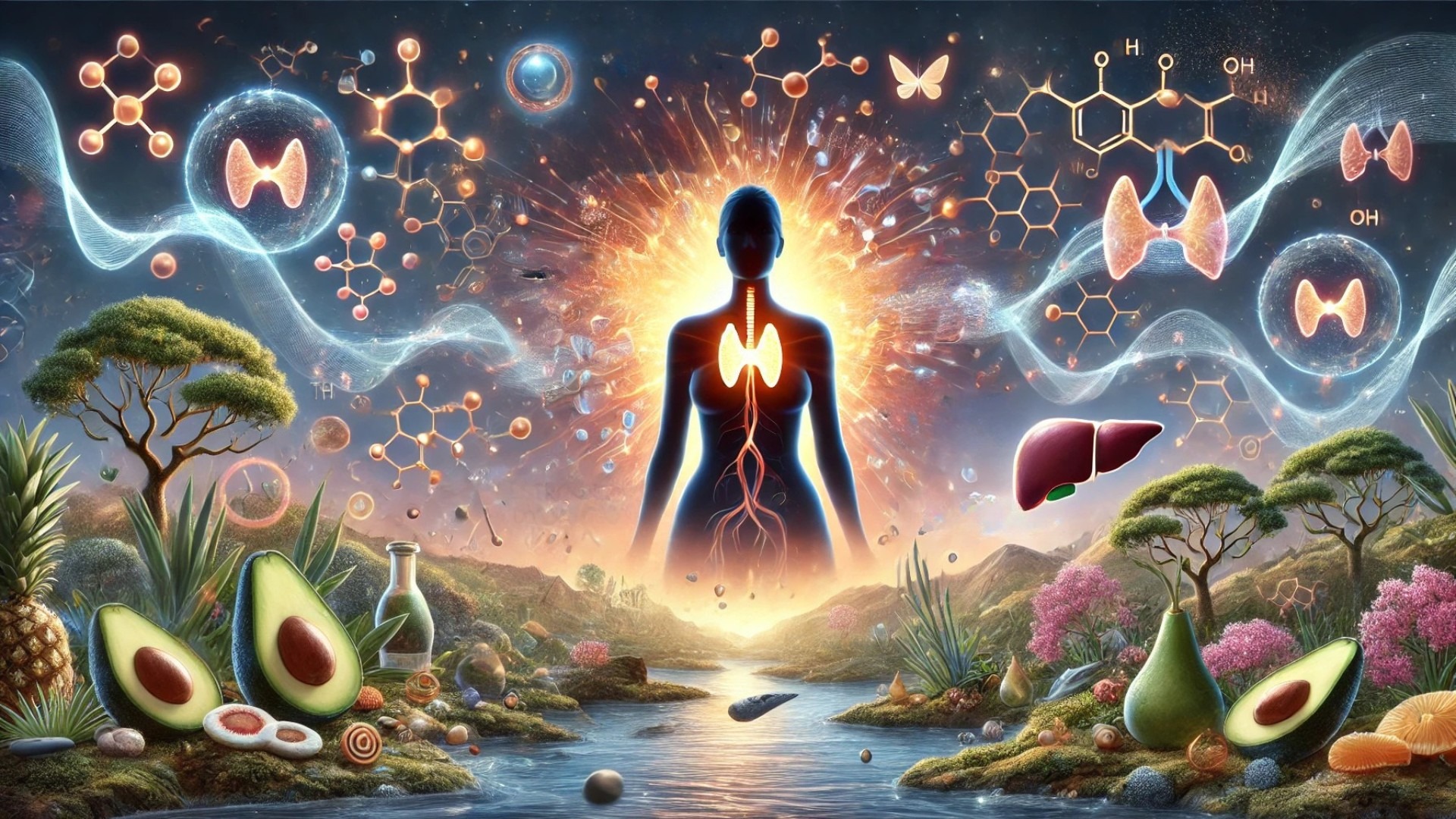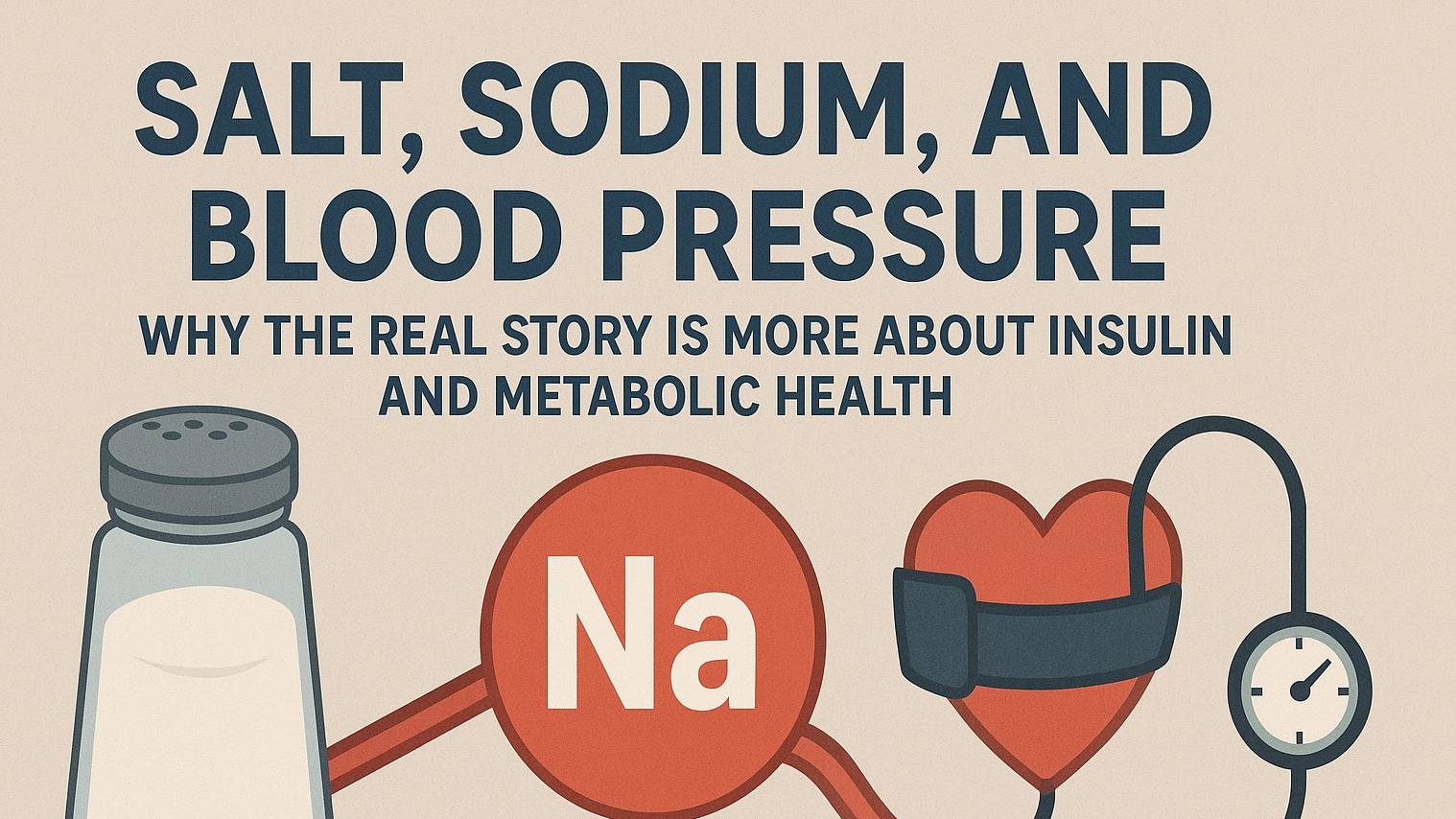
The thyroid gland plays a pivotal role in regulating metabolism, energy levels, and overall hormonal balance. Its function can be influenced by various factors, including hormonal imbalances and exposure to heavy metals. Understanding these relationships is crucial for maintaining optimal thyroid health and preventing conditions such as hypothyroidism, Hashimoto’s thyroiditis, and adrenal fatigue.
This article explores how hormones like estrogen and cortisol affect thyroid function, the role of heavy metals in thyroid disorders, and dietary strategies to support thyroid health.
Hormone Balance and the Thyroid
Hormonal imbalances, particularly involving estrogen dominance and cortisol dysregulation, can significantly impact thyroid function. When these hormones are out of balance, they interfere with the body's ability to produce, convert, and utilize thyroid hormones effectively.
Estrogen Dominance and Thyroid Function
Estrogen dominance occurs when estrogen levels are disproportionately high relative to progesterone. This imbalance can interfere with thyroid hormone activity in several ways:
-
Increased Thyroxine-Binding Globulin (TBG):
High estrogen levels lead to increased production of thyroxine-binding globulin (TBG), a protein that transports thyroid hormones in the bloodstream.
When more TBG is present, more thyroid hormones are bound and inactive, reducing the availability of free T3 and T4 for use in metabolism.
-
Inhibition of Thyroid Hormone Conversion:
Estrogen dominance interferes with the conversion of thyroxine (T4) to triiodothyronine (T3), the active form of thyroid hormone.
This can cause low T3 levels, which contribute to hypothyroidism symptoms such as fatigue, weight gain, brain fog, and depression.
-
Increased Risk of Autoimmune Thyroid Disorders:
Excess estrogen has been linked to a higher prevalence of Hashimoto’s thyroiditis, an autoimmune condition where the immune system attacks the thyroid gland.
Liver function also plays a key role in estrogen clearance. Since hypothyroidism can slow down liver detoxification, excess estrogen can accumulate, further exacerbating thyroid dysfunction (1).
Cortisol, Stress, and the Thyroid
Cortisol, the body's primary stress hormone, is produced by the adrenal glands. When stress levels are chronically high:
-
Cortisol Suppresses Thyroid Function:
High cortisol levels reduce the production of thyroid-stimulating hormone (TSH), slowing down thyroid activity.
This can lead to symptoms of hypothyroidism, including slowed metabolism, fatigue, and weight gain.
-
Blocks Thyroid Hormone Conversion:
Cortisol inhibits the conversion of T4 to T3, leading to low T3 levels despite normal thyroid function.
-
Disrupts the Estrogen-Progesterone Balance:
High cortisol levels cause progesterone to decline, allowing estrogen dominance to develop, which further impairs thyroid function.
Chronic stress also contributes to adrenal fatigue, a condition where the adrenal glands become overworked and struggle to produce adequate cortisol. This can lead to persistent fatigue, poor immune function, and metabolic sluggishness (2).
Dietary Fat and Thyroid Hormones
The body requires healthy fats to synthesize and regulate hormones. Insufficient fat intake can lead to:
Reduced Thyroid Hormone Production
Impaired Absorption of Fat-Soluble Vitamins (A, D, E, K)
Increased Inflammation and Hormonal Imbalances
To support thyroid health, focus on consuming healthy fats, such as:
✅ Omega-3 fatty acids (found in fish, flaxseeds, and walnuts)
✅ Monounsaturated fats (avocados, olive oil)
✅ Coconut oil (supports thyroid function and metabolism)
Heavy Metals and the Thyroid
Heavy metal exposure can disrupt thyroid function, leading to hypothyroidism, inflammation, and oxidative stress.
Mercury and the Thyroid
Mercury exposure comes from high-mercury fish, dental fillings, and environmental pollution.
Mercury accumulates in the thyroid gland and interferes with selenium, a mineral required for thyroid hormone conversion and antioxidant defense.
Studies suggest that mercury exposure is linked to increased thyroid disorders, including autoimmune thyroiditis (3).
Cadmium and Thyroid Dysfunction
Cadmium exposure is common in cigarette smoke, organ meats, and shellfish.
It has been linked to increased thyroid cancer risk and hormone imbalances (4).
Arsenic and Thyroid Disruption
Arsenic is present in contaminated drinking water and rice.
It interferes with thyroid hormone synthesis and metabolism, increasing the risk of hypothyroidism (5).
Dietary Strategies to Support Thyroid Health
To optimize thyroid function and reduce exposure to hormone disruptors:
1. Balance Hormones Naturally
✅ Reduce estrogen dominance with cruciferous vegetables (broccoli, kale) and fiber-rich foods to support liver detoxification.
✅ Manage cortisol levels through meditation, yoga, and deep breathing exercises.
✅ Ensure adequate intake of healthy fats and protein to support hormone production.
2. Minimize Heavy Metal Exposure
🚫 Avoid high-mercury fish like tuna, swordfish, and mackerel.
🚫 Limit rice consumption or choose organic, arsenic-free brands.
🚫 Avoid excessive bone broth consumption, which may contain high levels of lead.
3. Optimize Nutrient Intake
🔹 Selenium-rich foods (Brazil nuts, sunflower seeds) support thyroid function.
🔹 Iodine (seaweed, fish, dairy) is essential for thyroid hormone production.
🔹 Zinc and iron (lean meats, legumes) are necessary for T4 to T3 conversion.
Final Thoughts
The thyroid is deeply interconnected with hormone balance and toxin exposure. By managing stress, optimizing estrogen levels, reducing heavy metal exposure, and prioritizing nutrient-rich foods, you can take proactive steps to support thyroid function and overall health.
If you suspect hormonal imbalances are affecting your thyroid, consider working with a functional medicine practitioner to develop a personalized plan for recovery.
Scientific References
Role of Estrogen in Thyroid Function (Frontiers in Endocrinology, 2011).
Cortisol and Thyroid Dysfunction (VA Whole Health Library).
Mercury and Thyroid Disorders (PLOS ONE, 2021).
Cadmium Exposure and Thyroid Cancer Risk (PubMed, 2020).
Arsenic and Thyroid Dysfunction (Environmental Science & Pollution Research, 2020).
This article serves as a comprehensive guide for those looking to recover from hormonal imbalances affecting their thyroid. Let me know if you'd like any help learning more about overcoming any Thyroid challenges, or symptoms in this article that might let you know to get tested.. 😊
 Add Row
Add Row  Add
Add 










Write A Comment